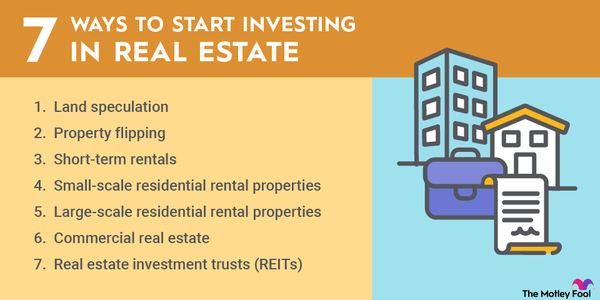Real Estate Investment Strategies for Beginners
Real estate investment can be a lucrative venture for beginners looking to build wealth and diversify their investment portfolio. However, navigating the real estate market can be challenging without the right strategies. In this article, we will discuss some effective real estate investment strategies tailored for beginners.
1. Educate Yourself
Before diving into real estate investment, it is crucial to educate yourself about the market, trends, and investment strategies. Attend seminars, read books, and follow real estate blogs to stay informed. Understanding the basics of real estate investing will help you make informed decisions and mitigate risks.
2. Set Clear Goals
Define your investment goals before starting your real estate journey. Are you looking for long-term rental income, short-term appreciation, or flipping properties for profit? Having clear goals will guide your investment decisions and help you stay focused on your objectives.
3. Start Small
As a beginner, it is recommended to start small with your real estate investments. Consider investing in single-family homes, condos, or duplexes before diving into more complex properties. Starting small will allow you to gain experience and familiarize yourself with the real estate market.
4. Research the Market
Conduct thorough research on the local real estate market before making any investment decisions. Analyze property prices, rental yields, vacancy rates, and future development plans in the area. Understanding the market dynamics will help you make informed investment choices.
5. Build a Network
Networking is crucial in the real estate industry. Connect with real estate agents, contractors, property managers, and other investors to build a strong network. Networking can help you find potential investment opportunities, access valuable resources, and learn from experienced professionals.
6. Consider Different Investment Strategies
There are various real estate investment strategies to choose from, such as rental properties, fix-and-flip, wholesaling, and REITs. Evaluate the pros and cons of each strategy and choose the one that aligns with your investment goals and risk tolerance.
7. Analyze Your Financials
Before making any real estate investment, analyze your financials to determine your budget, expenses, and potential returns. Consider factors such as down payment, mortgage rates, property taxes, maintenance costs, and expected rental income. A clear financial plan will help you make sound investment decisions.
8. Seek Professional Advice
It is advisable to seek professional advice when venturing into real estate investment. Consult with a real estate agent, financial advisor, or legal expert to guide you through the process and address any concerns. Professional advice can help you avoid common pitfalls and make informed investment decisions.
9. Monitor Your Investments
Once you have made your real estate investments, it is essential to monitor their performance regularly. Keep track of rental income, expenses, property values, and market trends. Adjust your strategies as needed to maximize returns and mitigate risks.
Conclusion
Real estate investment can be a rewarding venture for beginners willing to put in the time and effort. By following these strategies and staying informed about the market, you can build a successful real estate portfolio and achieve your investment goals. Remember to start small, educate yourself, network with industry professionals, and seek professional advice to make sound investment decisions.


